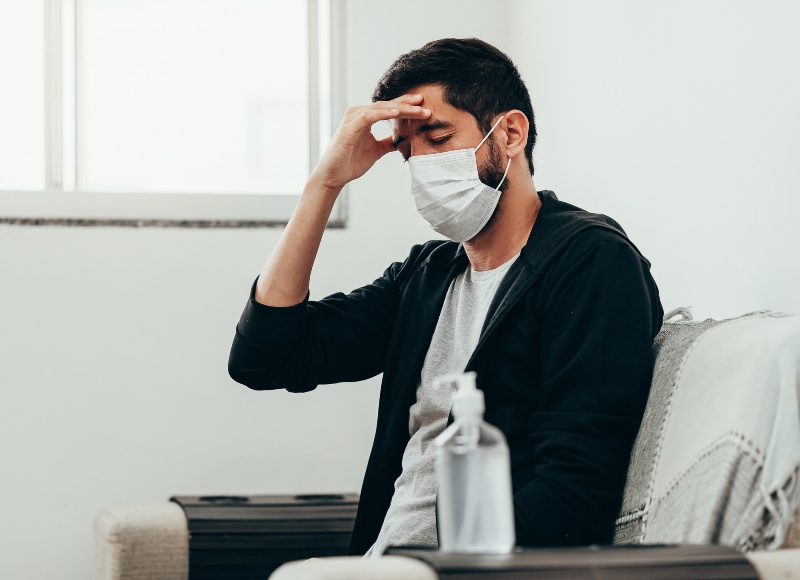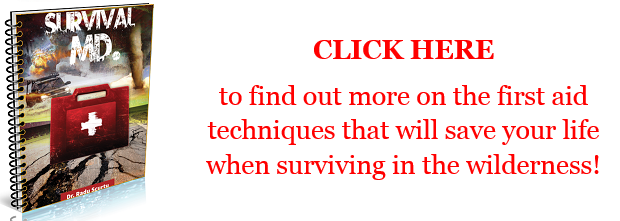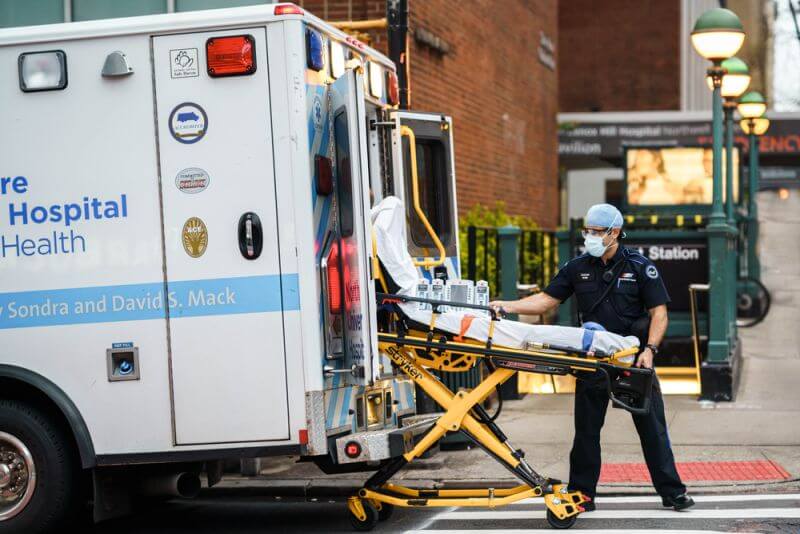There’s no substitute for the insight gained by traveling. Unfortunately, it’s best to learn some lessons before your departure.
What will you do if an earthquake strikes while you’re conducting business in Delhi, leaving you with broken bones and a shaken psyche? What if you get COVID-19 while on your mission trip? Or have an asthma attack and can’t find a pharmacy to refill your inhaler?
Traveling abroad means making contingency plans. The more you prepare before departure, the less chance you’ll end up in an exotic location rife with tropical plants but short on hospitals and your needed medication. Here are six mistakes to avoid when sick or injured in another country.
1. Not Planning for Emergencies
Understanding what to do if you get sick or injured in another country starts before departure. This rule goes double if you plan to travel to a nation without the amenities in the United States. For example, you might feel uncomfortable seeking medical treatment for even relatively minor injuries when traveling to regions without well-developed health care systems. How can you trust the pills if you feel uncertain about drinking the water?
You’ll have far less stress if you make emergency transportation arrangements before leaving the states. All you’ll have to do is consult your plan, contact the appropriate parties, and you’ll be on your way home. You might experience some discomfort, but you won’t have to deal with the mental anguish of figuring out what to do with your brain clouded by pain.
What if something happens to you that renders you incommunicado? You might not want to contemplate this possibility, but natural disasters strike. So do thieves willing to incapacitate you to take what they want. Let’s not start on the horrors of the sex trafficking trade. Taking off to parts unknown without leaving a flight plan might sound cavalier, even romantic — until nobody notices that you haven’t returned home a week after your disappearance.
Appoint a point person back home and schedule regular check-ins. Devise a plan for what they should do if you don’t report at the required time. How long should they give you before contacting the authorities? What methods do they have to get in touch? At a minimum, they should have your hotel phone and room number, your cell and the contact information for the embassy in the nation you’re visiting so that they can reach the correct authorities if you fail to appear and they can’t discern your whereabouts.
How often should you check in? It depends on your comfort level and the relative danger in your destination. You might only schedule a touchpoint once or twice a week if you plan to summer in England. However, travelers to areas of political or social unrest might want to contact someone stateside each day so that the other party can take immediate action. You’re more likely to receive help within the first few hours and days of your disappearance.
2. Not Understanding Your Insurance
You might be one of the fortunate folks with superior health insurance at home. However, even Cadillac coverage is no guarantee that you’ll have overseas coverage without purchasing a special rider or separate policy. For example, the Centers for Medicare and Medicaid Services wants travelers to know that standard Medicare coverage doesn’t extend beyond U.S. borders. However, those with a supplemental policy can check with that carrier regarding their options.
Please remember that each country has a unique health system, many of which are far more comprehensive than the United States. Countries with single-payer systems ensure everyone the same coverage through taxes — England’s NHS is an example. While some services are free, such as most infectious disease treatments, others result in a charge.
Other countries have universal policies that ensure all citizens access through a range of insurers. In such countries, you typically have to pay for treatment as a visitor, then apply for reimbursement later. Fortunately, you may delight in the prices — you’ll find many considerably lower than at home. However, you must ensure that you have the free cash available in a bank account, as many professionals will only accept fees from travelers via wire transfers.
Fortunately, you can get travel policies to cover you while on your trip. Your current health insurance carrier is also your first stop for overseas coverage. Ensure your policy offers 24-hour travel assistance to help you get where you need to be in your time of need. If your current policy holder offers no options, look into specialty traveler’s insurance.

3. Not Keeping Your Contact Information Handy
Do you have an “ICE” number on your phone — labeling your most vital contact, like your partner, with this abbreviation helps first responders know who to reach out to if you’re injured and uncommunicative? Simply include this acronym in your contacts list next to anyone you’d like to receive a call if you get hurt in another country.
It’s also wise to make your phone unlockable via face id before you depart, even if you normally disable this feature for privacy reasons. That way, local first responders can unlock your device to access your contact information, even if you’re unconscious. While this method isn’t foolproof, it gives authorities an extra avenue for getting in touch with those you hold dear.
4. Not Checking Local Reports
You might know that it’s risky to plan your destination wedding in the heart of the Caribbean hurricane season. However, how much do you know about the weather when you plan to arrive in Nepal? Natural disasters can strike without warning, but many regions have seasons that rank as riskier than others.
Preparing for a natural disaster while in another country shares much in common with doing the same at home. When you arrive at the hotel, identify the emergency exit and a secondary route if that way becomes blocked. Most facilities have dedicated signs, including Braille for the visually impaired, but different countries have various rules — ask your hotel about their evacuation plan.
Go online and research what natural disasters typically occur in your destination. Ready.gov is an excellent site. If you must travel during monsoon season or periods of high wildfire risk, keep your most vital documents like your passport and credit card handy at all times. It’s wise to invest in a travel belt that keeps these things close to your flesh and away from pickpockets, anyway — and you can grab it and go in a hurry.
5. Not Bringing Your Medications and Health History
Different countries likewise have various medication rules and regulations. You don’t want to arrive at the hospital in desperate need of a refill only to discover you lack the requisite documentation to authorize medical professionals to dispense your prescription.
Please bring along a copy of all prescriptions in case you need them refilled while away. Accidents happen — you might struggle to remove a lid and have your pills skitter away down the drain. It’s a smart idea to take a special travel dose, so talk with your doctor before departure to have them fill an adequate supply to see you through your journey. Keep these medications in your carry-on luggage to not lose them if your luggage lands in Karachi while you remain safely in Bangalore.
You should also carry information about your health history in case authorities must transport you to the hospital while unconscious or unable to communicate. Fortunately, technology makes this chore easier than ever. Many cellphones have a health app that allows you to include information and even link to your practitioner’s sites to access medical records.
However, if you don’t have such a feature, please write down your doctor’s name and contact information, all medications you take and your health conditions. Keep this data in your wallet in case first responders need to access it in an emergency.
6. Not Talking to Those in the Know
What’s it really like to get sick in Germany or break your leg in Dubai? The best way to find out is by talking to others who have been there.
Fortunately, you can make friends abroad, even if you haven’t yet departed on your first overseas trek. Various sites exist where you can make penpals from another country, and many social media outlets also have groups for people interested in global travel. You can connect virtually with other people who live in the country you plan to visit.
Once you form a friendship, ask them your questions about seeking treatment. Another source of information is fellow travelers who have gotten sick or injured in your destination country. It’s the best way to hear from the horse’s mouth what you can expect regarding wait times, fees and ease of accessing treatment. Upon your return, you can repay the favor by sharing your experiences with the online community.
6 Mistakes to Avoid When Sick or Injured in Another Country
What happens if you get in a car accident while visiting Tokyo? How will you cope with a case of COVID-19 in Chile? International travel requires you to consider such questions before departure.
It all begins with knowing what not to do. Avoid the six mistakes above when sick or injured in another country. A little preparation ensures you a safe and healthy journey.
Disclaimer: This video content is for informational purposes only. Although the author and publisher have made every effort to ensure that the information is correct, the author and publisher do not assume and hereby disclaim any liability to any party for any loss, damage, or disruption caused by errors or omissions, whether such errors or omissions result from negligence, accident, or any other cause. The publisher and the author make no guarantees concerning the level of success you may experience by following the advice contained in this video.









DeWaine Yearsley | August 24, 2022
|
Years ago I worked for ARAMCO. I had Us and ARAMCO insurance. I was on the way home and had a night time layover in London. I got sick and the local hospital would not do anything for me. They would not even accept cash. I had a terrible night but was able to go to a pharmacy the next morning and then flew home. That experience lowered my opinion of England to the point where I would avoid flights through England.